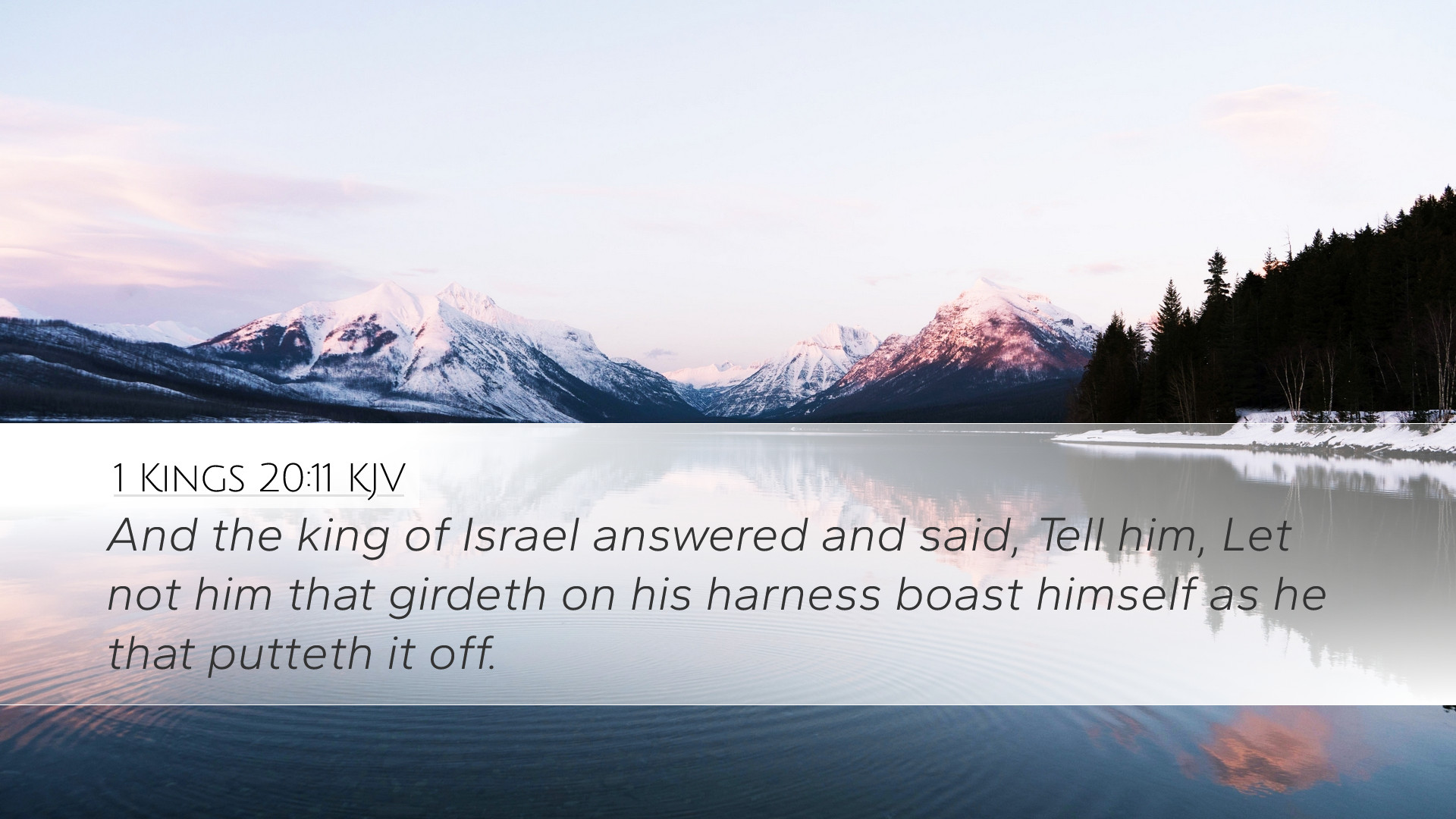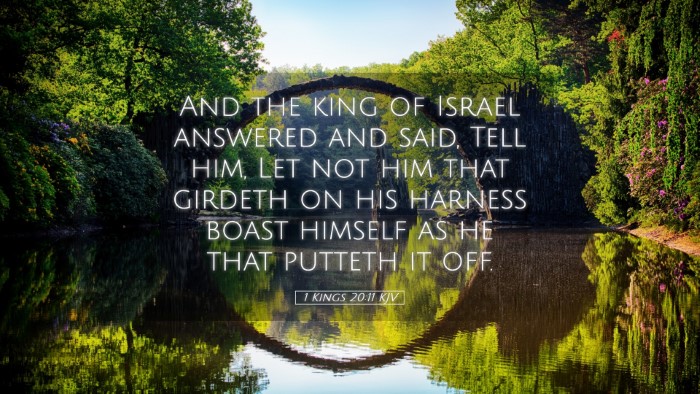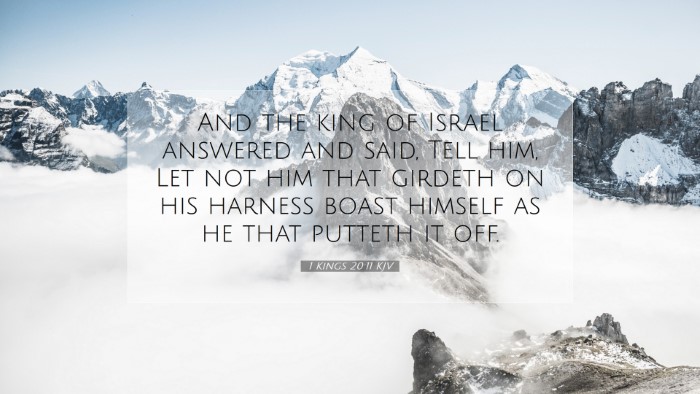Commentary on 1 Kings 20:11
Verse Text: "And the king of Israel answered and said, Tell him, Let not him that girdeth on his harness boast himself as he that putteth it off."
Introduction
This verse is nestled within a significant narrative of conflict between Israel and Syria, specifically between King Ahab of Israel and Ben-Hadad, king of Syria. This moment encapsulates themes of pride, warfare, and the fickle nature of boasting amidst the uncertainties of battle. In examining this verse through the lenses of prominent Biblical commentators, we uncover layers of meaning that address both the historical context and the spiritual lessons applicable to contemporary life.
Historical Context
The setting of 1 Kings 20 is crucial to understanding Ahab’s response. Israel is facing an aggressive foe, Ben-Hadad, who boasts about his military might. Commentators emphasize that this dialogue occurs at a pivotal juncture—one that reveals the differing attitudes towards victory and defeat.
Insights from Matthew Henry
Matthew Henry emphasizes the caution against overconfidence. Ahab's reply to Ben-Hadad signifies a vital principle in warfare and in life: one should not boast of one’s strength or readiness until the outcome is evident. Henry notes that Ahab, despite being mocked and threatened, responds with a wisdom that acknowledges the folly of presumptions based on situations that are not yet concluded.
Henry further brings to light the spiritual implications of this verse. The harness, a symbol of readiness for battle, should not lead one to arrogance, for victory is never guaranteed until the battle is won. Hence, humility in the face of adversity is a virtue that resonates deeply with those who are called to lead, such as pastors and theologians.
Reflections from Adam Clarke
Adam Clarke brings a critical analytical perspective, noting the cultural understanding of boasting in warfare. He points out that ancient Near Eastern customs often included glorifying one's might, but Ahab’s retort serves as a sober reminder of the unpredictable nature of conflict. Clarke states that while one may don the armor of a warrior, the outcome remains uncertain; thus, pride is ill-advised until the battle concludes.
Clarke also explains the phrase "girdeth on his harness" as an idiom for preparing for battle. He urges readers to consider their personal preparatory efforts in life and ministry, advising against an attitude of presumption that can cloud one’s judgment and dismiss the need for reliance on divine strength.
Albert Barnes' Commentary
Albert Barnes focuses on the psychological and moral aspects of Ahab’s statement. He illustrates how Ahab’s words reflect a deeper understanding of human nature and the trials of leadership. Barnes argues that Ahab’s caution is wisdom; he recognizes that those who hold the sword might still face defeat, and thus, overconfidence can lead to downfall.
Furthermore, Barnes underscores the implications for leaders in ministry and life. He suggests that this verse serves as a profound caution to avoid taking pride in one’s achievements or status without acknowledging the grace of God that sustains them. The practical application for church leaders is to live humbly, recognizing that their victories in ministry are not solely the results of their efforts but are contingent on God’s providence.
Theological Implications
The theological insights mined from 1 Kings 20:11 resonate with fundamental Christian doctrines—particularly the nature of human pride, humility, and reliance on God’s strength. Throughout Scripture, we see a consistent admonition against pride. The New Testament parallels can be drawn where James 4:6 states, “God resists the proud, but gives grace to the humble.” This deep-seated principle is reiterated in Ahab's wise caution.
Moreover, the verse serves to illustrate the conditional nature of success in the Christian walk. Just as a soldier must remain vigilant and reliant on their superior officer's strategy, so too must followers of Christ maintain their dependency on divine guidance and strength.
Conclusion
In summary, 1 Kings 20:11 offers profound insights into the nature of human pride and the necessity of humility in leadership, especially within the contexts of spiritual and ecclesiastical battles. The wisdom shared by Ahab, underscoring the folly of presumption in the face of unknown outcomes, remains as timeless advice for today's pastors, scholars, and all believers. The teachings extracted from the commentaries of Matthew Henry, Adam Clarke, and Albert Barnes collectively enrich our understanding and application of these eternal truths.


